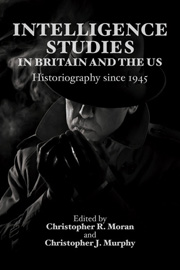Book contents
- Frontmatter
- Contents
- The Editors
- The Contributors
- List of Figures
- Preface
- Acknowledgements
- Introduction: Intelligence Studies Now and Then
- Part I AMERICAN INTELLIGENCE HISTORIOGRAPHY
- Part II BRITISH INTELLIGENCE HISTORIOGRAPHY
- 9 A Plain Tale of Pundits, Players and Professionals: The Historiography of the Great Game
- 10 No Cloaks, No Daggers: The Historiography of British Military Intelligence
- 11 The Study of Interrogation: A Focus on Torture, But What About the Intelligence?
- 12 Whitehall, Intelligence and Official History: Editing SOE in France
- 13 A Tale of Torture? Alexander Scotland, The London Cage and Post-War British Secrecy
- 14 1968 – ‘A Year to Remember’ for the Study of British Intelligence?
- 15 Their Trade is Treachery: A Retrospective
- 16 Intelligence and ‘Official History’
- Index
13 - A Tale of Torture? Alexander Scotland, The London Cage and Post-War British Secrecy
from Part II - BRITISH INTELLIGENCE HISTORIOGRAPHY
Published online by Cambridge University Press: 05 October 2013
- Frontmatter
- Contents
- The Editors
- The Contributors
- List of Figures
- Preface
- Acknowledgements
- Introduction: Intelligence Studies Now and Then
- Part I AMERICAN INTELLIGENCE HISTORIOGRAPHY
- Part II BRITISH INTELLIGENCE HISTORIOGRAPHY
- 9 A Plain Tale of Pundits, Players and Professionals: The Historiography of the Great Game
- 10 No Cloaks, No Daggers: The Historiography of British Military Intelligence
- 11 The Study of Interrogation: A Focus on Torture, But What About the Intelligence?
- 12 Whitehall, Intelligence and Official History: Editing SOE in France
- 13 A Tale of Torture? Alexander Scotland, The London Cage and Post-War British Secrecy
- 14 1968 – ‘A Year to Remember’ for the Study of British Intelligence?
- 15 Their Trade is Treachery: A Retrospective
- 16 Intelligence and ‘Official History’
- Index
Summary
The immediate post-war period saw the publication of a number of secret service accounts recounting wartime exploits, giving the impression that, with the end of hostilities, these could now be revealed. In fact, as has been clearly demonstrated by Richard J. Aldrich, officials in Whitehall attempted to manage the release of intelligence-related subject matter into the public domain, largely to protect the secrets of code-breaking and strategic deception. While receiving the most attention, these were not the only wartime activities which were strictly off-limits to publishers, as far as the authorities were concerned. Efforts to publish details of prisoner interrogation – a valuable source of human intelligence (HUMINT) – also gave cause for official concern, prompting the authorities to engage in a lengthy process to prevent Lieutenant Colonel Alexander Paterson Scotland from detailing his experiences as head of the London District Cage.
While the authorities certainly attempted to keep these secrets, their efforts to do so met with mixed results. They were hampered by two significant limitations. First, they had to know, of course, that such publications were in the pipeline. In addition, they had to deal with authors and publishers, who, while warned of the potential consequences of publication, pressed ahead, regardless. Here, the authorities muddied the waters with an apparent tendency to vary their response; the differing consequences that authors could face being effectively illustrated by the cases of Alfred Duff Cooper and Eddie Chapman.
- Type
- Chapter
- Information
- Intelligence Studies in Britain and the USHistoriography since 1945, pp. 251 - 262Publisher: Edinburgh University PressPrint publication year: 2013



